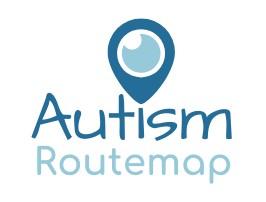Autism, a world of contrasts

The festivities have all passed and we’re well into the second part of January which means … drum roll please …. Blue Monday is behind us and Spring is somewhere up ahead in the not too distant future.
Executive Function challenges are not part of the diagnostic criteria for autism but they are strongly correlated and often pose major roadblocks in everyday life.
So what are Executive Function Skills?
I wish there was a simple answer but unfortunately we have little consensus on the subject. Researchers are still debating which skills should be included under this umbrella term.
I like to think of them as the “office manager of the brain”. They are the complex brain processes we use in the many day-to-day tasks that keep life on track.
Dawson and Guare’s 2009* model highlights key Executive Function skills which include the ability to:
- think flexibly and revise plans when there are obstacles, setbacks, new information or mistakes (Flexibility)
- hold information in your memory whilst doing other things (Working Memory)
- plan and prioritise by creating a mental map of what is needed to achieve a goal (Planning and Prioritising)
- organise by creating and maintaining systems for tracking information / materials (Organisation)
- manage time effectively (Time Management)
- monitor and evaluate how you are doing (Metacognition)
- sustain your attention despite factors such as distractions, fatigue and boredom (Sustained Attention)
- set and complete goals (Goal Directed Persistence)
- think before you act (Response Inhibition)
- start projects in a reasonable time-frame without excessive procrastination (Task Initiation)
- manage emotions as you carry out daily tasks (Emotional Control)
Children have a baseline level of support from the structures of home and school life. But things change when we start university or work. In these environments, the demands on our Executive Function are much higher and the cracks can start to show. In my experience, those cracks sometimes become craters with disastrous consequences.
It can be particularly confusing when these challenges show up in people with good intellectual ability. We expect to support indiviuals with learning difficulties but we assume that intelligent people can manage everyday activities without excessive difficulty.
And when they don’t, we often make negative assumptions – “He can’t be bothered”, “She doesn’t respect my time”, “He’s not a team player”, “She’s incompetent”, “Why on earth hasn’t this been done already?”
It’s worth noting that our fast-paced world places many demands on our attention which impacts on our ability to do tasks requiring Executive Function skills. In addition, anxiety and stress (currently at very high levels for many people) also negatively affect Executive Function skills.
So, what helps people with Executive Function challenges? Here are a few suggestions:
Interpretation is key.
- If you are an employer, parent or educator be mindful that these are genuine difficulties and not deliberate behaviours that are designed to infuriate. Acknowledging that rather than judging or penalising will facilitate discussion about strategies. Likewise, if you have Executive Function challenges, don’t beat yourself up or regard yourself as a failure. There are many accommodations that can make the world of difference.
Adopt a step-by-step process for introducing strategies.
- Trying to address multiple areas at one time is unlikely to work because strategies often require executive function skills for successful implementation!
Hello tech!
- Our tech world has much to offer in the way of Apps that support various aspects of executive function. Tiimo is an app that includes a host of useful features. Brain in Hand can be very useful especially to support emotional regulation.
- Other software tools like Asana have a visual tracking system which is particularly helpful for team projects.
- Phone alarms are useful for reminders at set times during the day.
Routines
- Morning and end-of-workday routines before leaving the office help with planning and prioritising next steps.
- Morning and evening routines at home can facilitate positive emotional states and mental clarity for managing daily activities.
- Daily / weekly routines work well for managing tasks like laundry, shopping etc.
Rest
- Regular rest breaks during the day (even short ones) restore mental clarity and the ability to focus.
Physical exercise
- Physical exercise has been shown to have a positive effect on Executive Function skills.
I grew up in South Africa which in many ways, is a land of contrasts. I’m often struck by the manner in which beauty and pain share the same space. Incredible feats of selfless kindness alongside heartless acts of cruelty. Extreme wealth and unbearable poverty. In a matter of moments, my emotions can ride a rollercoaster from the joy of breath-taking scenery to the sadness of seeing people fight for survival.
Autism, likewise can be full of contrasts. Extreme capability and talent for complex tasks can easily co-exist with significant challenges in everyday activities. Unravelling these perplexing details and finding ways forwards is an essential part of supporting people so they can thrive.
To thriving!

Autism Routemap
Linda Philips empowers and equips people to communicate effectively, find freedom in their relationships and experience greater emotional well-being.
*P. Dawson & R. Guare. (2009). Smart But Scattered: The Revolutionary "Executive Skills" Approach to Helping Kids Reach Their Potential. New York: The Guildford Press. 314 pages. ISBN: 978 1 59385 445 4
EXCITING NEWS!
Linda will be co-hosting a free webinar for parents / educators of autistic university students. On this new training, she will be joined by Victoria Bagnall who is a pioneer in the field of executive function skills development. See you on the 16 February at 7pm BST! Reserve your spot here.
Disclaimer
This blog post is for educational purposes and should not be taken as medical or therapeutic advice. If you need medical or therapeutic support, please consult your medical practitioner or therapist.

